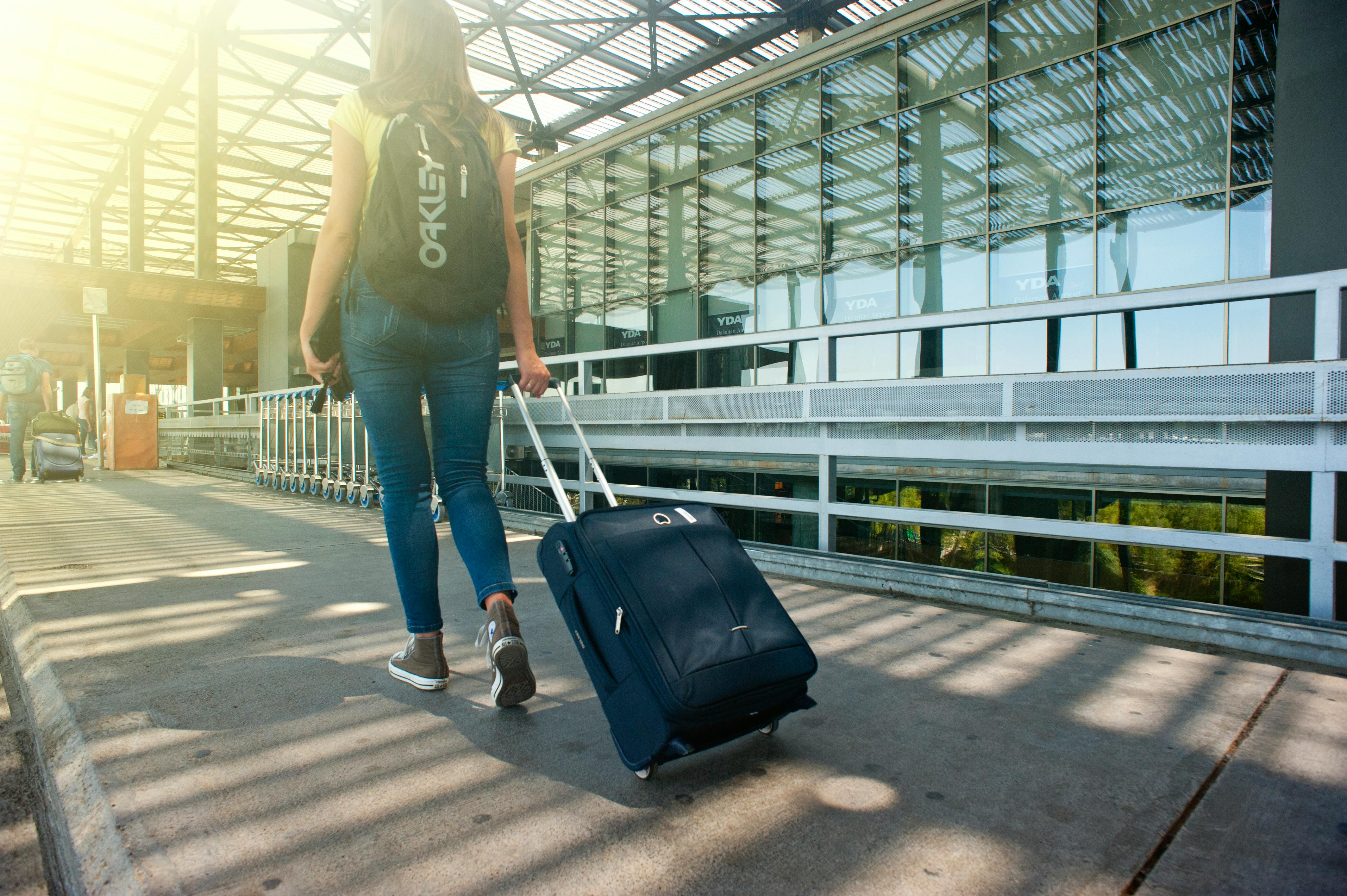Lesson: Strategic Travel Planning and Logistics

Photo by Alex P from Pexels: https://www.pexels.com/photo/woman-walking-on-pathway-while-strolling-luggage-1008155/
Activity I: Vocabulary
- Itinerary – A detailed plan for a journey, especially a list of places to visit; route.
- Logistics – The detailed coordination of a complex operation involving many people, facilities, or supplies.
- Contingency – A future event or circumstance which is possible but cannot be predicted with certainty.
- Visa – An endorsement on a passport indicating that the holder is allowed to enter, leave, or stay for a specified period of time in a country.
- Accommodation – A room, group of rooms, or building in which someone may live or stay.
- Budget (verb/noun) – To allow or provide a particular amount of money in a budget; an estimate of income and expenditure for a set period.
- Optimize – To make the best or most effective use of (a situation or resource).
- Off-season – A time of year when a particular activity, especially a holiday, is less popular.
- Layover (Stopover) – A period of rest or waiting before a further stage in a journey.
Activity II: Reading
Strategic travel planning and mastering logistics are key to transforming a good trip into an unforgettable adventure. While spontaneity has its charms, thoughtful preparation can significantly enhance the travel experience, minimize stress, and help optimize your time and resources. For upper-intermediate English learners, discussing these aspects of travel involves practical vocabulary and planning skills that are useful for organizing their own journeys and sharing advice with others.
Effective travel planning typically begins with thorough research about the destination. This includes understanding visa requirements, local customs, currency, and safety precautions. Crafting a flexible itinerary that balances planned activities with free time is often ideal. Booking accommodation and major transportation in advance, especially during peak season, can save money and ensure availability. Budgeting is another crucial element; estimating costs for flights, lodging, food, activities, and contingency funds helps keep finances in check throughout the trip. Consider traveling during the off-season for potentially lower prices and fewer crowds.
The logistics of travel also involve packing efficiently, arranging travel insurance, and ensuring all necessary documents (passports, visas, tickets) are in order. For international travel, understanding airport procedures, managing layovers or stopovers, and navigating local transportation upon arrival are important skills. Phrases like, "We need to factor in a two-hour layover in Amsterdam," or "What's the most efficient way to get from the airport to the city center?" are common. It's also wise to have a contingency plan for unexpected events like flight delays or lost luggage.
Discussing travel planning allows upper-intermediate learners to use future tenses, conditional clauses, and persuasive language (e.g., recommending a particular booking strategy or destination). Sharing tips on how to find the best deals, pack light, or navigate cultural differences can be very helpful. Ultimately, strategic planning and careful attention to logistics pave the way for a smoother, more enjoyable, and enriching travel experience, allowing you to fully immerse yourself in your destination.
Activity III: Role Play
Instructions: Practice this dialogue with your teacher. Two friends, ANNA and MARK, are planning a multi-city trip.
Activity IV: Let's Practice
Plan a Trip Itinerary with Your Teacher.
Student: Imagine you are planning a one-week trip to a country or region you'd like to visit. Discuss the initial planning and logistics with your teacher. What would be your destination? What kind of accommodation would you look for? How would you budget for the trip? What key sights or activities would be on your itinerary? Consider potential contingencies (e.g., bad weather, unexpected closures). Try to use some of the advanced vocabulary from Activity I. Teacher: Help the student to think strategically about their trip. Ask questions about their choices, visa requirements (if applicable), transportation within the destination, and how they would optimize their time and budget. Discuss the importance of a flexible itinerary versus a fixed one.